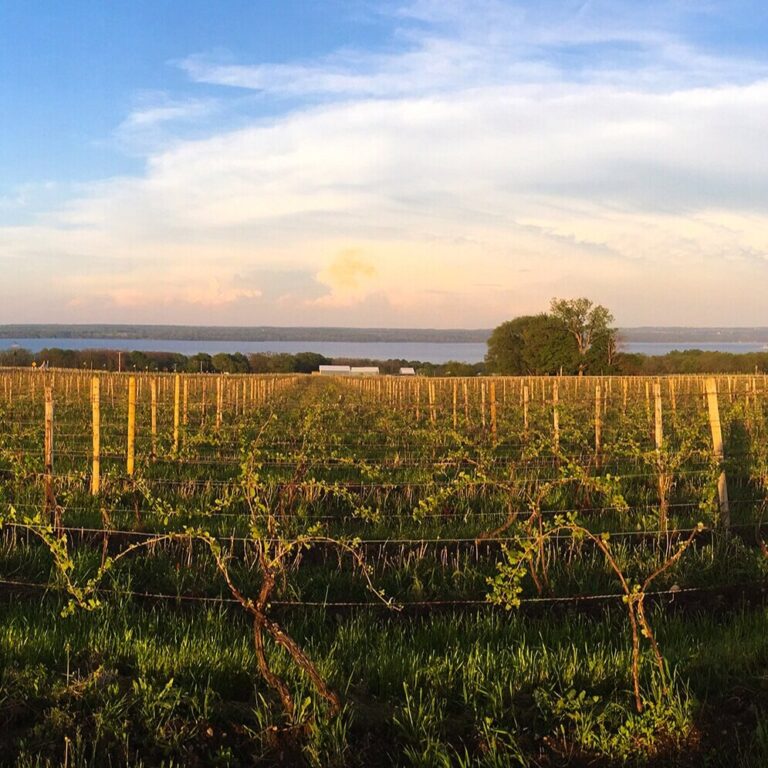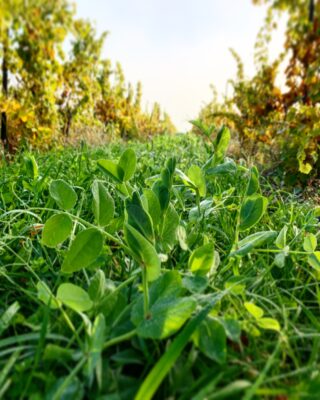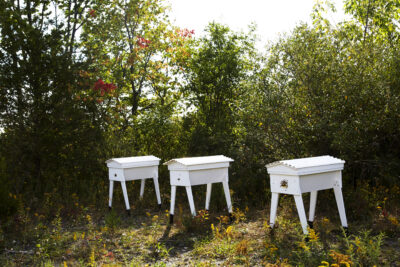
Attitudes, practices, and policies have been changing especially in the last decade with regards to sustainability. There is mounting concern for personal health, and environmental and social problems that the world is facing including sickness and disease, extinction of plant and animal species, depletion natural resources, global warming, etc.
An increasing number of New York’s 450+ wineries focus on sustainability and biodyanamics in their farming, winemaking, and operational practices because they feel it’s their responsibly consider their impact not only on the present social and natural environment, but on future generations. This month we will focus on two wineries in the Finger Lakes that have been leaders in biodiversity and sustainability practices for nearly 30 years.
Since their founding, Hermann J. Wiemer Vineyard has approached the health of their vineyards as the most vital component of winemaking. Hermann Wiemer himself is often quoted as saying “we are going to drink these wines too.” Meaning first and foremost, that their farming practices better be up to their own standards! They not only feel a global responsibility to farm sustainably, but on a more personal level, the winery and vineyards is where they work and live- and where their children live. A commitment to responsible farming is a commitment to the next generation as well.

Through the years this approach has led to a focused ecological engagement where they consider the larger needs of their surroundings as well as the specific needs of each vineyard, lot, and even individual vines. The team at Wiemer adheres to unique farming methods that focus not solely on our vineyards but on the totality of their farm, promoting biodiversity in adjacent fields, forests, and meadows, while utilizing cover crops, beneficials, and homeopathic teas and preparations. These practices encourage stronger, more resilient vineyards, and in turn better wines.
In 2003, they eliminated the use of all herbicides and synthetic inputs, and instead incorporate cover crops and organic fertilizers. Their next step in sustainable farming was a project with biodynamics. In the Summer of 2014, Thijs Verschuuren, who had previously studied and worked in biodynamics in the Loire Valley of France, joined their team and a year later, spearheaded the farming project, initially committing 14 acres at their HJW property and expanding to the entire 33-acre site over the ensuing years. This project will help them to understand both the effects and efficacy of biodynamic farming and they are currently working towards Demeter Certification for their HJW site in 2020.
 This list of viticulture practices is partial, of course, and is constantly changing and adapting based on the obstacles that nature provides. However, it does showcase a “zoom out” effect that they often consider here, beginning with an individual vine or bee, and zooming out to encompass the surrounding ecosystem and beyond. Another common theme that they refer to constantly is “health,” whether in reference to yeasts, soils, vines, or ecosystems, they work alongside nature to cultivate resilience in their vineyards. The goal at Hermann J. Wiemer Vineyard has been and will continue to be to expand biodynamic and sustainability practices and create wines that reflect the intrinsic compatibility of vineyards and their surroundings.
This list of viticulture practices is partial, of course, and is constantly changing and adapting based on the obstacles that nature provides. However, it does showcase a “zoom out” effect that they often consider here, beginning with an individual vine or bee, and zooming out to encompass the surrounding ecosystem and beyond. Another common theme that they refer to constantly is “health,” whether in reference to yeasts, soils, vines, or ecosystems, they work alongside nature to cultivate resilience in their vineyards. The goal at Hermann J. Wiemer Vineyard has been and will continue to be to expand biodynamic and sustainability practices and create wines that reflect the intrinsic compatibility of vineyards and their surroundings.
